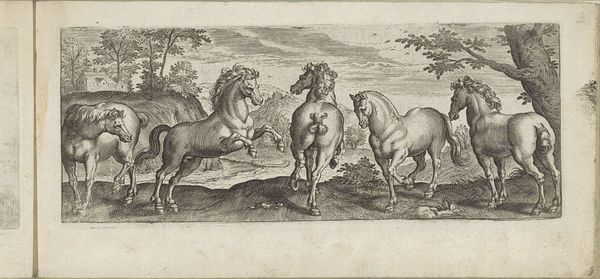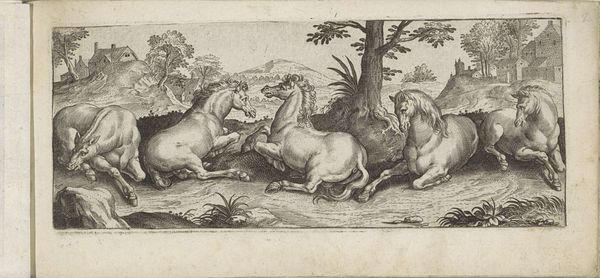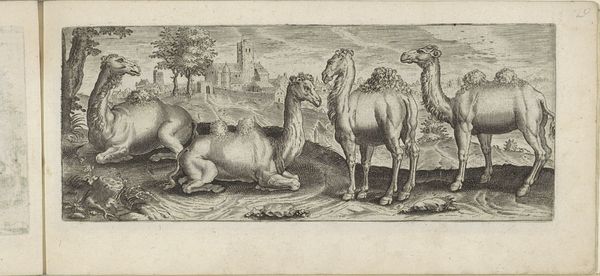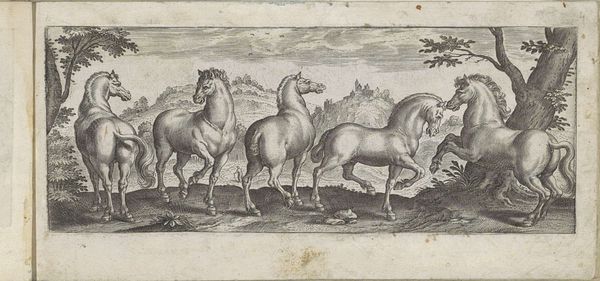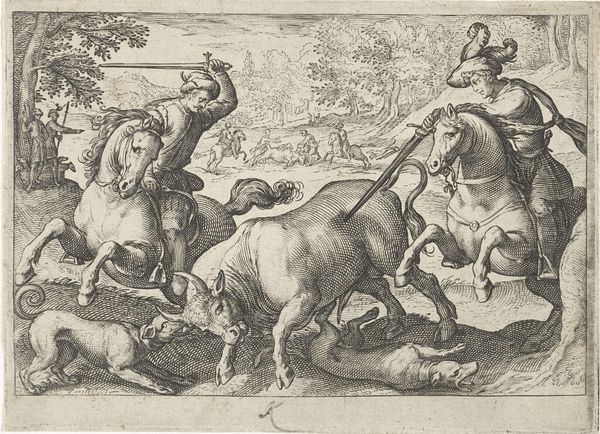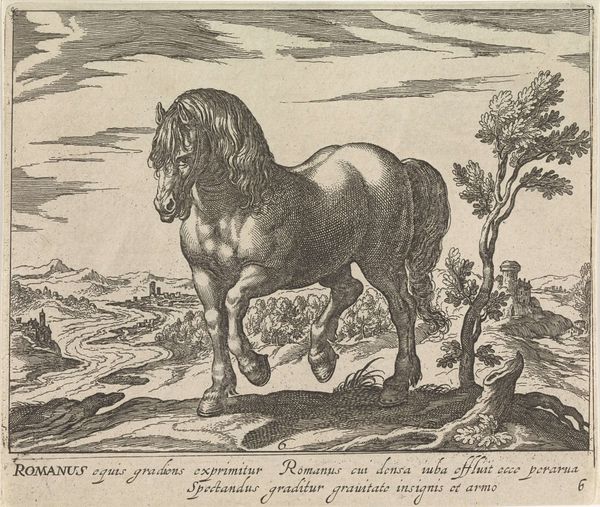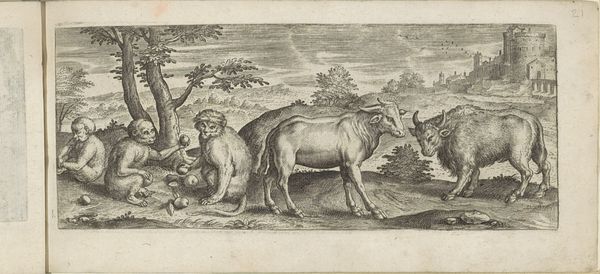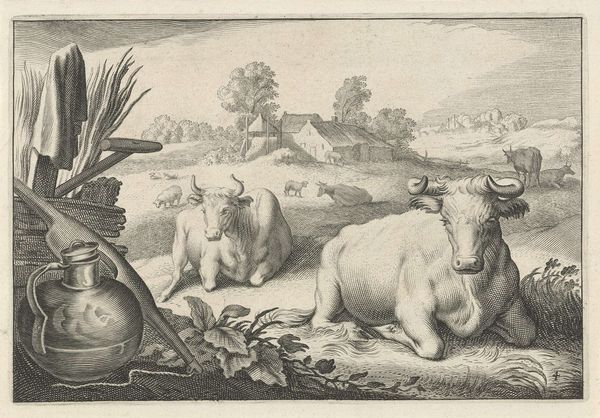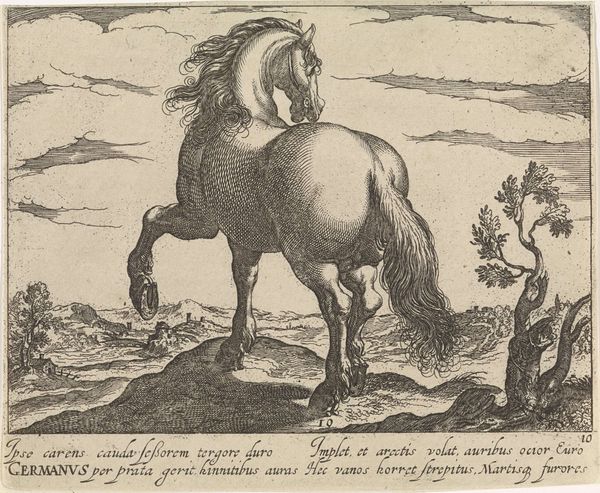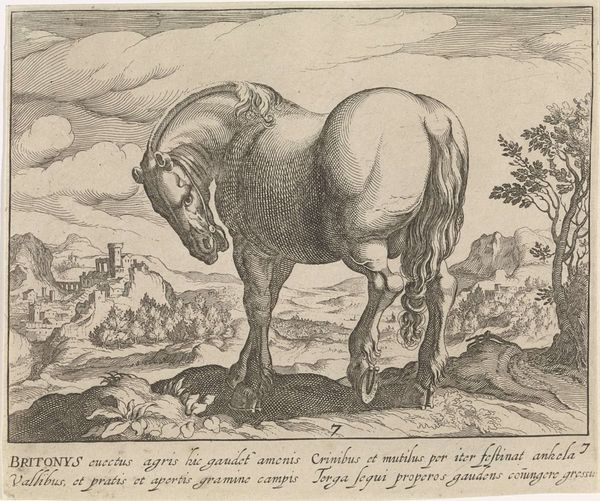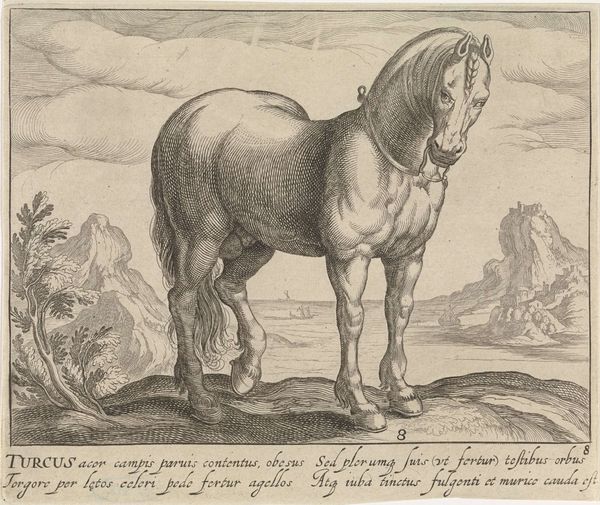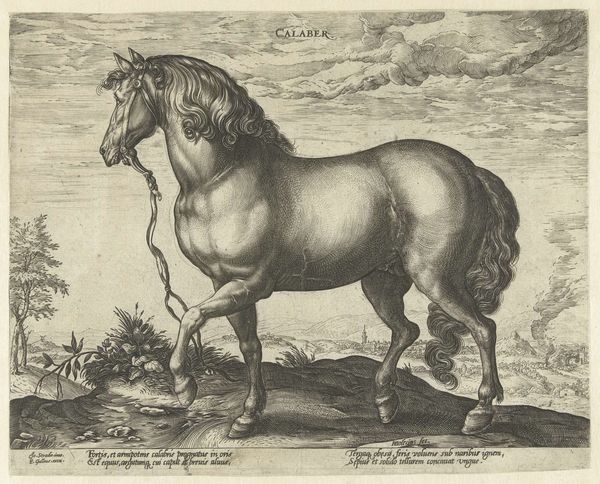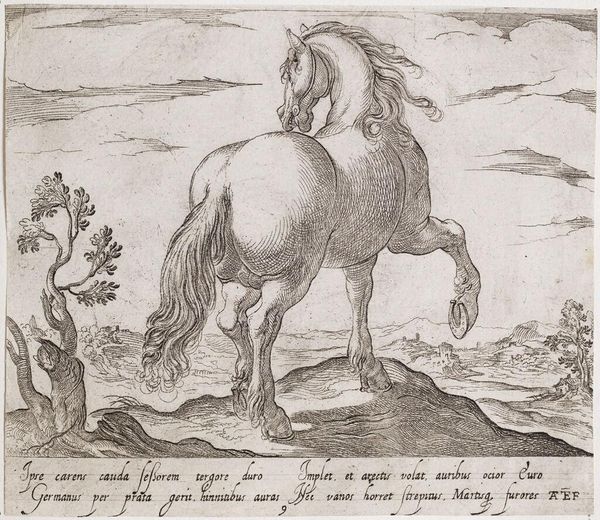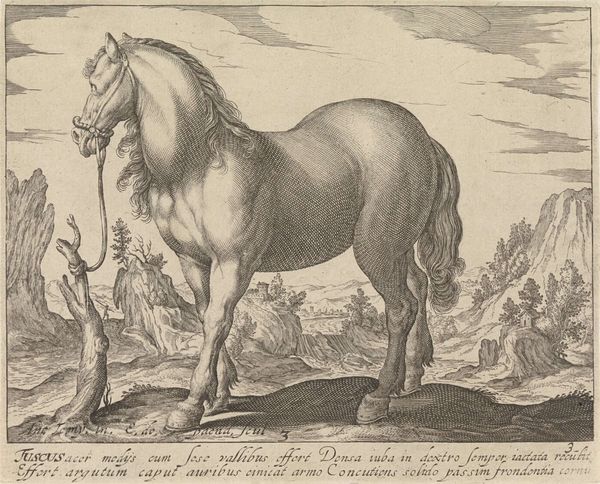
print, engraving
#
baroque
# print
#
pen sketch
#
landscape
#
figuration
#
pen-ink sketch
#
line
#
engraving
#
realism
Dimensions: height 130 mm, width 193 mm
Copyright: Rijks Museum: Open Domain
Reinier van Persijn made this print, 'Landschap met twee paarden', whose title translates to 'Landscape with two horses', some time in the 17th century. During this period in the Netherlands, the Dutch Golden Age, there was growing wealth, and with this new economic power came new forms of art, like landscape art. Here, we see two horses in a serene pasture. The larger one, in the foreground, stands tall and proud, while the other rests peacefully. But these horses are more than just figures in a landscape. Horses have historically been symbols of status and power, connected to the aristocracy, military strength, and, of course, wealth. By depicting these horses in such a way, Van Persijn taps into the cultural narrative of the era, subtly commenting on class and social hierarchy. As you stand here, consider how the intersection of nature and status is portrayed, and how it reflects the values of the time. This piece offers a glimpse into the complex relationship between art, society, and identity in the Dutch Golden Age.
Comments
No comments
Be the first to comment and join the conversation on the ultimate creative platform.
